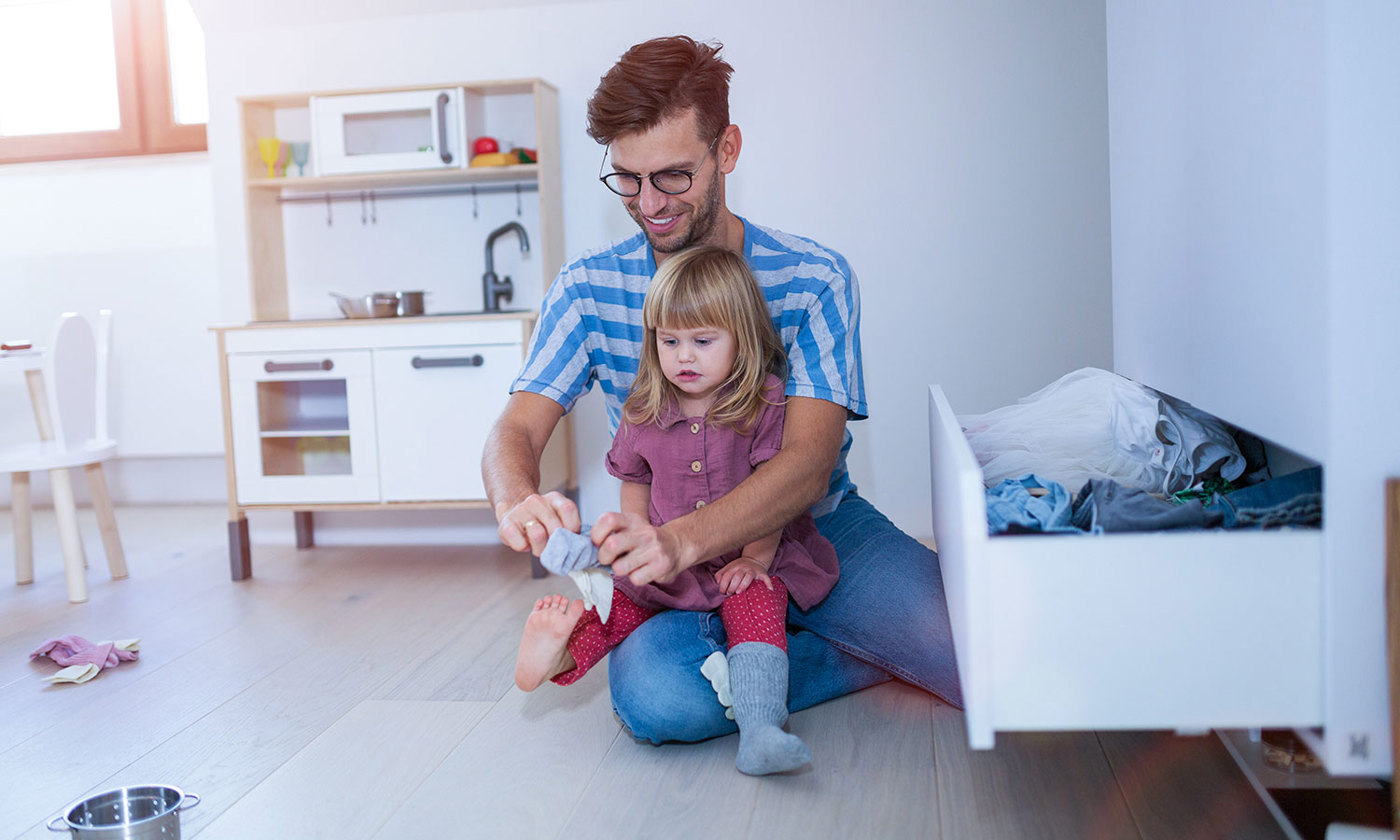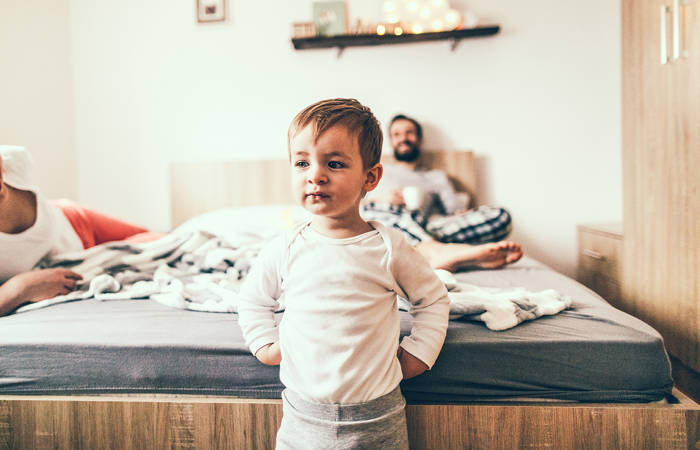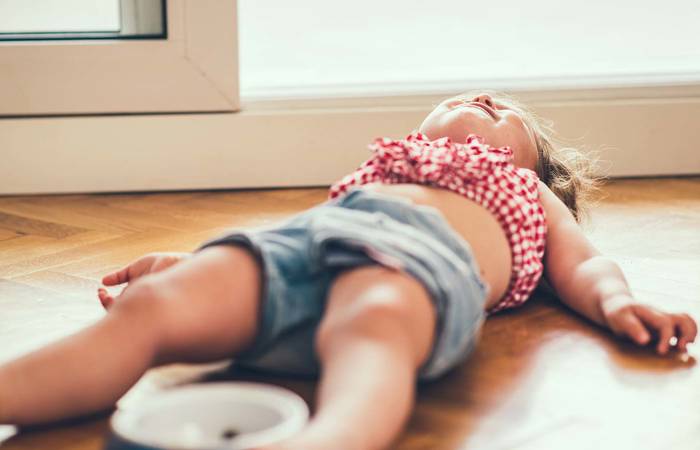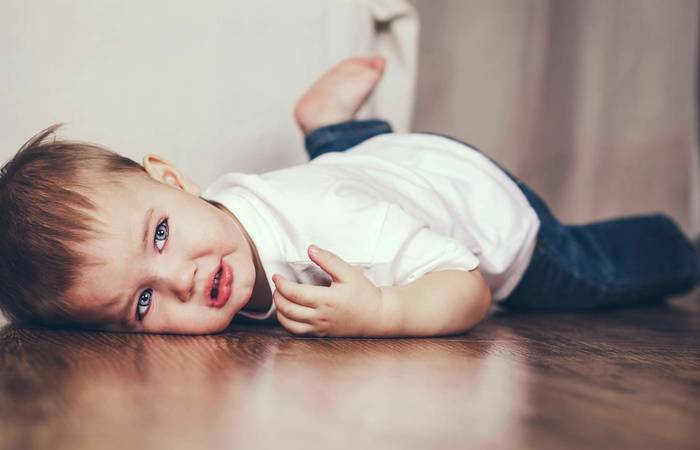Like what you see?
Sign up to receive more free parenting advice.
Thank you for subscribing to our newsletter!
Lifestyle

Credit: iStock.com/Jay Yuno
Calm and happy households are the ultimate goal for most parents, but there are certain times of day when this can seem like an unattainable fairy tale.
Unsurprisingly, getting the family ready to leave the house in the morning and returning home at the end of the day, can be the most testing for parents and children, says University of Queensland Associate Professor Alina Morawska.
Associate Professor Morawska is Deputy Director (Research) at the Parenting and Family Support Centre.
Coping with challenging transition times
“I probably don’t even need to specify this, but in the mornings when at least some family members need to get out of the door, and then at the end of the day when the family is returning to the home setting and they might all be feeling tired, cranky, hungry, or all of those things - these are the challenging transition times,” she says.
Setting up a flexible routine and having a plan that suits the developmental stages of the smaller members of the family can help you keep your cool and keep everyone on task, says Associate Professor Morawska.
“Routine is important for everybody in a household, not just young children,” she says.
“We all benefit from having a predictable sequence, those things that we don’t even have to think about in terms of organising and preparing.
“If you have a routine it takes a few of those daily decisions out of your hands and so that creates a bit more of a relaxed atmosphere, which reduces stress,” she says.
Everyone can benefit from some level of routine
For parents who prefer a more relaxed lifestyle, a routine can still be beneficial.
“Everybody has their own preferences to the extent to which things are planned out versus just going with the flow, but everybody benefits from some level of routine,” Associate Professor Morawska says.
“Even parents who generally go with the flow would probably say they do have routines in place to allow that to happen.”
While routines benefit everyone in a family, young children can particularly thrive because a routine helps them understand the sequence that things happen in, giving them a sense of security and helping them to learn how things go together, or what order things need to be done in.
“Routines can also help problem behaviours because if children know what to expect then they’re less likely to misbehave in those sorts of contexts.”
There are a few things to consider when it comes to setting your family routines, says Associate Professor Morawska.
Routines are about having a plan and being prepared, so think about what can be streamlined - things like making lunches or organising clothes the night before, or deciding on the order that things will be done in.
Get your children involved in the routines and depending on their ages, give them responsibility for certain tasks.
“Obviously with very young children, parents are much more responsible for getting them organised, fed, clothes on and out the door. Whereas as children get older, they can take more responsibility for those things,” Associate Professor Morawska says.
“Children are always interested in learning new skills so I don’t think you can start this too early, but what parents need to do is to tune into what their child is capable of doing and what they’re developmentally ready to do and make that part of the routine,” she says.
It might be putting on a t-shirt, brushing their own hair, finding their shoes and socks, or washing their hands.
“Also, it can be helpful to look for signs that show you what your child is interested in helping with, because that is one of the things that’s going to make your routine both at the beginning of the day and the end of the day a lot easier, if the children can take care of some of those tasks by themselves.”
Routines can also help problem behaviours because if children know what to expect then they’re less likely to misbehave in those sorts of contexts.Associate Professor Alina Morawska
Stay up to date with the latest news and articles from First Five Years
Thank you for subscribing to our newsletter!
Creating flexible family routines
The final key to setting successful family routines, is to make sure they are flexible enough that they suit every member of your family and they can be adapted when the inevitable disruption happens.
“The flipside of a flexible routine is a rigid routine, so if your routine is too rigid and doesn’t accommodate the need of the children, particularly as they’re getting older then it can become problematic. So if parents are still using a routine for a child they had for babies, well clearly that isn’t going to work effectively,” Associate Professor Morawska says.
“So, your routine needs to be adapted and it needs to develop with the child as the child is getting older and becoming more independent and it needs to be flexible because let’s face it, things happen and even the best plan and the best routine isn’t going to accommodate spills, so a flexible routine is really important.”
A routine is simply an approximate plan of what needs to happen throughout the day.
For example, a broad overview of a morning routine might include: breakfast, get dressed and brush teeth, pack bags, playtime, leave the house.
“Then we might have more micro routines for a specific event, for instance a morning routine but right down to the level of something like the routine for how you need to go about brushing your teeth,” Associate Professor Morawska says.
“So, the thing to remember about routines is that they operate at different levels - from a micro routine like how you brush your teeth, to a global routine for an entire day.”
Including children in development of routines
While there is no one magic routine that will benefit every family, Associate Professor Morawska says every family needs to work out what strategies will work best for them and include children in the development of that routine.
Some suggestions include preparing lunches and laying out clothing the night before, giving your children their own special jobs, or using pictures or checklists so everyone knows what to do in what order.
When it comes to the afternoon routine, where parents need to unpack, prepare dinner and get the children bathed, it can help to think about having activities in place for the children that are engaging, keep them busy and also create a sense of independence.
“If parents keep independence at the forefront, and have things set up that the children can do on their own while parents get all of those tasks done, it is less likely that there will be problems because the parents know what to expect and the children know what to do.”
Every family will have their own unique approach to routines. Here are some tips to get you started:
- Prepare lunches the night before to save time in the morning.
- Prepare some, or all of your nightly meals ahead of time.
- Lay all family members’ clothing out each night so when you wake up you know what you’ll be wearing.
- Have specific places in your home for bags, books, folders, etc., so you always know where these things are.
- Have pictures up on the wall or fridge to show your children the sequence of activities that need to happen before they leave the house, or when they return home.
- Have a check list of activities that need to be done, for your older children to tick off.
- Incorporate games that encourage your children to complete certain tasks into your morning routine or your night time routine.






